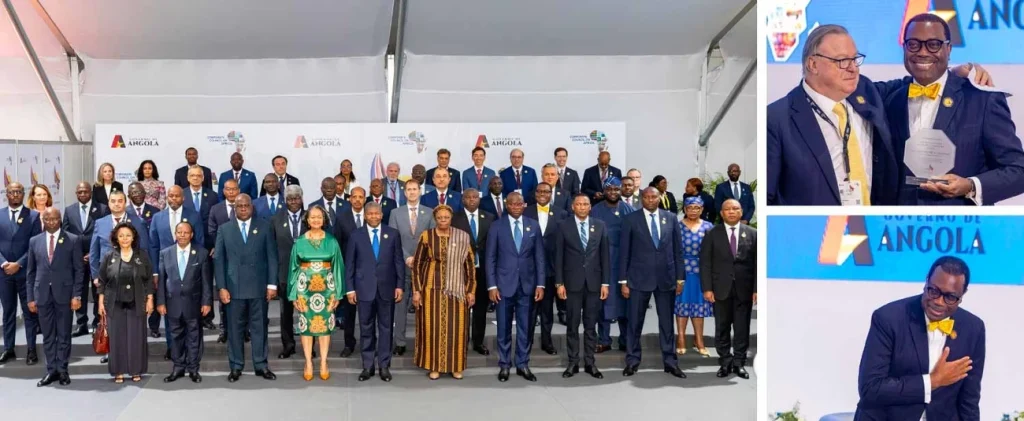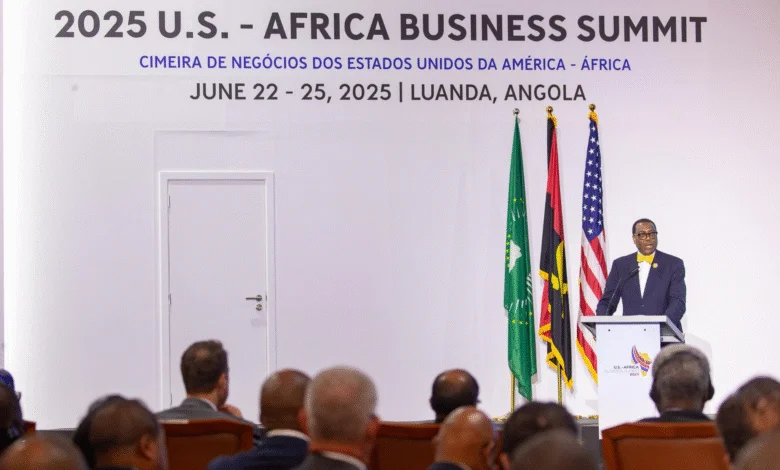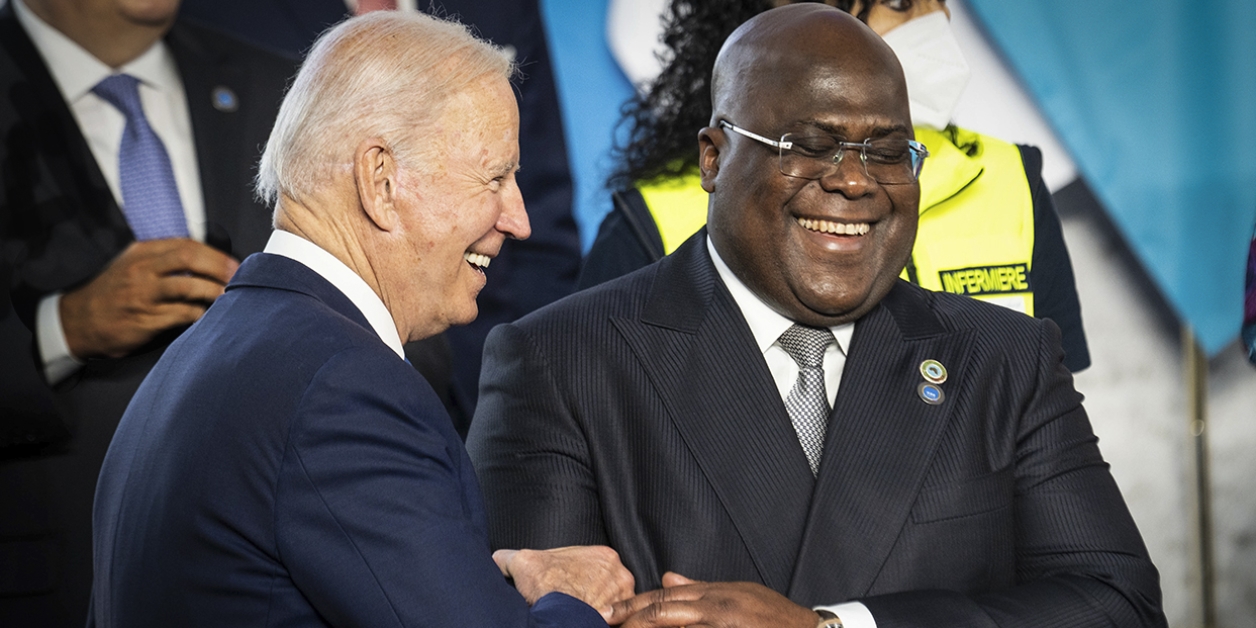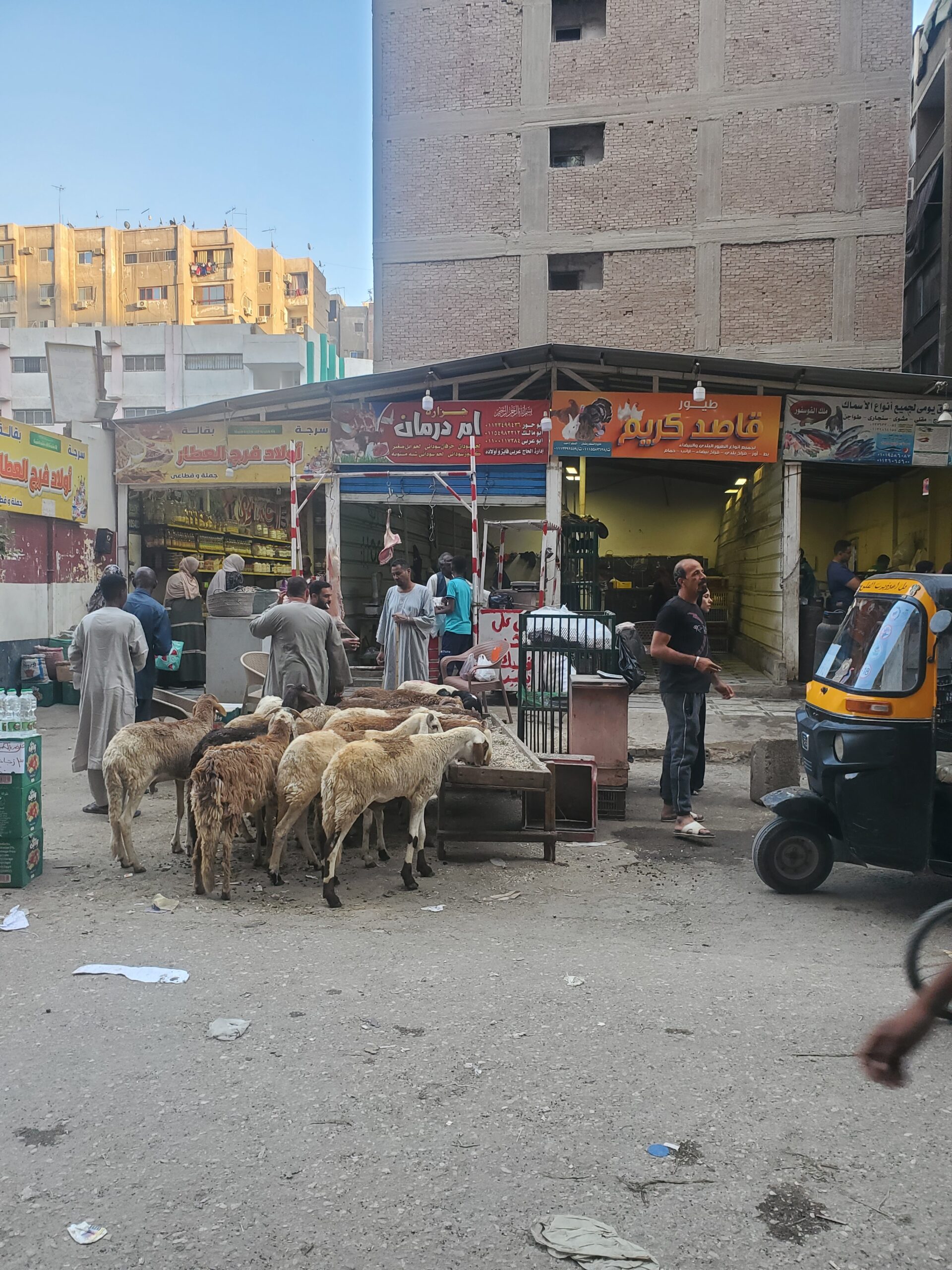US–Africa Business Summit 2025 in Luanda: From Aid to Investment
The 17th US–Africa Business Summit was held in Luanda, Angola, from June 22–25, 2025, under the theme “Pathways to Prosperity: A Shared Vision for US–Africa Partnership”. The summit gathered over 1,500 participants, including African heads of state, senior U.S. government officials, and global business leaders . For Africa, this event marked a pivotal turning point—where the call for investment over aid was loud and clear.

US–Africa Business Summit
📌 Key Speech by Angola’s President João Lourenço
- From Aid to Ambition: President Lourenço emphasized that “Africa no longer needs aid, but ambition, innovation, and private sector investment.” He urged a new model of engagement with the U.S. rooted in economic empowerment and trade, not charity.
- Showcasing Angola’s Growth: Lourenço pointed to Angola’s 3.5% GDP growth in Q1 2025 as proof that African nations are ripe for real investment, particularly in energy, infrastructure, tourism, and agriculture.
Responses from Other African Leaders
- African Union Commission: Mahmoud Ali Youssouf said Africa doesn’t seek charity but mutually beneficial solutions based on Agenda 2063.
- African Development Bank (AfDB): Akinwumi Adesina stated, “Africa needs more trade, not less,” and called for lower tariffs on African exports to U.S. markets.
- AfCFTA Secretariat: Secretary-General Wamkele Mene stressed implementing the African Continental Free Trade Area to bolster intra-African trade and industrialization.
High-Level Meeting: Félix Tshisekedi and João Lourenço
On the summit’s sidelines, a one-on-one meeting was held between Félix Tshisekedi, President of the Democratic Republic of the Congo (DRC), and João Lourenço of Angola. The discussion centered on regional security, economic integration, and the M23 crisis in eastern DRC.
🚉 Spotlight on the Lobito Corridor BY US–Africa Business Summit
One of the summit’s main highlights was the Lobito Corridor—a strategic rail and infrastructure project linking Angola, the DRC, and Zambia. Backed by U.S. financing of up to $4 billion, it represents the largest American rail investment abroad to date.
The project aims to ease the export of vital minerals needed for clean energy technologies and economic development. The move also illustrates Washington’s intent to provide a strategic counterbalance to Chinese influence in Africa.

Summit Outcomes and Economic Gains
The Angolan hospitality sector experienced a notable uptick, with Luanda hotels reaching near-full occupancy. Over 15,000 hotel beds were available, showcasing Angola’s readiness to host global events. Angola’s Minister of Industry and Commerce noted the summit as a “milestone in American-Angolan cooperation in energy, digitalization, and industrial growth.”
From Aid to Investment: A New Era in Africa–U.S. Economic Partnership
The US–Africa Business Summit 2025 in Luanda served as a landmark moment in redefining the Africa–U.S. partnership. Moving beyond traditional models of assistance, the summit highlighted a strategic shift from aid to investment, emphasizing long-term economic cooperation, private-sector engagement, and mutual prosperity. Discussions focused on empowering African economies through infrastructure, technology, and energy investments, signaling a new era where U.S. and African stakeholders view each other as equal partners in development and opportunity.
Quotes that Mattered
William Ruto (Kenya’s President): “Africa is not a continent of problems but a continent of opportunities. Let us move beyond aid and build lasting partnerships.”
Ousmane Sonko (Senegal’s PM): “We are not here for handouts. We are here to craft a future where Africa drives its own destiny.”
For more aboute João Lourenço ,Félix Tshisekedi,
- Learn more about AfCFTA and its implementation.
- Explore how the Lobito Corridor will transform trade.
- External sources:
📌 Conclusion
The US–Africa Business Summit 2025 was a turning point in reimagining U.S.-Africa relations. Moving away from the outdated aid model, African leaders made a strong case for equitable, investment-driven partnerships. With initiatives like the Lobito Corridor and AfCFTA implementation gaining traction, the summit set the stage for a new era of shared prosperity rooted in respect, opportunity, and mutual ambition.
Thanks for reading for more news visit our website africaciviclens.com
This post by AfricaIntelligence.com




